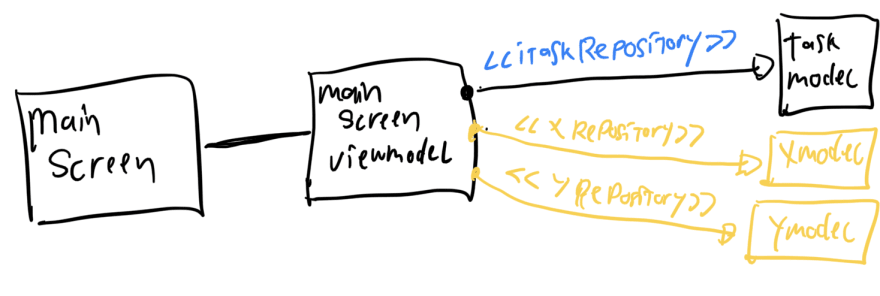hi, before we start, this article are continue from preivous post regarding flutter mvvm using provider, injectable, and freeze
MVVM Part 1
MVVM Part 2
The Code Project Is Here...
this article will focused on how to implement the injectable step by step...
now.. Injectable, are the Dependency Injection component that allow us to register an object to Dependency Injection through Annotation, instead of registering dependency with bellow approach
getIt.registerSingleton<TaskRepositoryImpl>(TaskRepositoryImpl());
getIt.registerLazySingleton<MainScreenViewModel>(() =>MainScreenViewModel());
we can simply put annotation on each class declaration of TaskRepositoryImpl and MainScreenViewModel like this
@singleton
class TaskRepositoryImpl implements ITaskRepository{
final String baseUrl = "run.mocky.io";
...
}
@injectable
class MainScreenViewModel extends BaseViewModel {
List<TaskModel>? _tasksData;
final ITaskRepository _taskRepository = getIt<TaskRepositoryImpl>();
...
}
now in our case of WhatToDoApp
Remember This image? 
we'd like to have a singleton Repository and late assign of ViewModel layer... so we declare the TaskRepository this way :
@singleton
class TaskRepositoryImpl implements ITaskRepository{
final String baseUrl = "run.mocky.io";
...
}
and when we need to use it in the viewmodel we can use it this way
@injectable
class MainScreenViewModel extends BaseViewModel {
List<TaskModel>? _tasksData;
//=== THIS WAY ===//
final ITaskRepository _taskRepository = getIt<TaskRepositoryImpl>();
...
}
easy right?
no in order to implement this style, we need to import a couple things into our pubspec.yaml
dependencies:
flutter:
sdk: flutter
injectable: ^1.5.3
get_it: ^7.2.0
dev_dependencies:
# add the generator to your dev_dependencies
injectable_generator: ^1.5.4
# add build runner if not already added
build_runner: ^2.2.0
remember, everytime we declare class with @Injectable or @Singleton annotation, the injectable component actually will generating file that contain a registration to GetIt like bellow:
_i1.GetIt $initGetIt(_i1.GetIt get,
{String? environment, _i2.EnvironmentFilter? environmentFilter}) {
final gh = _i2.GetItHelper(get, environment, environmentFilter);
gh.factory<_i3.MainScreenViewModel>(() => _i3.MainScreenViewModel());
gh.singleton<_i4.TaskRepositoryImpl>(_i4.TaskRepositoryImpl());
return get;
in order for injectable generating file content like above, you have to create some new file in my case it called Setup.dart
and the content is like this..
import 'package:get_it/get_it.dart';
import 'package:injectable/injectable.dart';
import 'package:what_to_do_app/Setup.config.dart';
final getIt = GetIt.instance;
@InjectableInit(
initializerName: r'$initGetIt', // default
preferRelativeImports: true, // default
asExtension: false, // default
)
@InjectableInit(generateForDir: ['test'])
void configureDependencies() => $initGetIt(getIt);
after we declare the Setup.dart above, we can run command
flutter packages pub run build_runner build --delete-conflicting-outputs
then it will generating file called Setup.config.dart. then that's it.. your Dependency Injection are now ready to serve you.. CHEERS!!!..
Ref:
Injectable
GetIt






Top comments (0)